A uniform magnetic field of induction B is confined to a cyclindrical region of radius R. The magnetic field is increasing at a constant rate of dB/dt (tesla/ second). A charge q of mass m, placed at the point P on the periphery of the fixed experiences an acceleration :
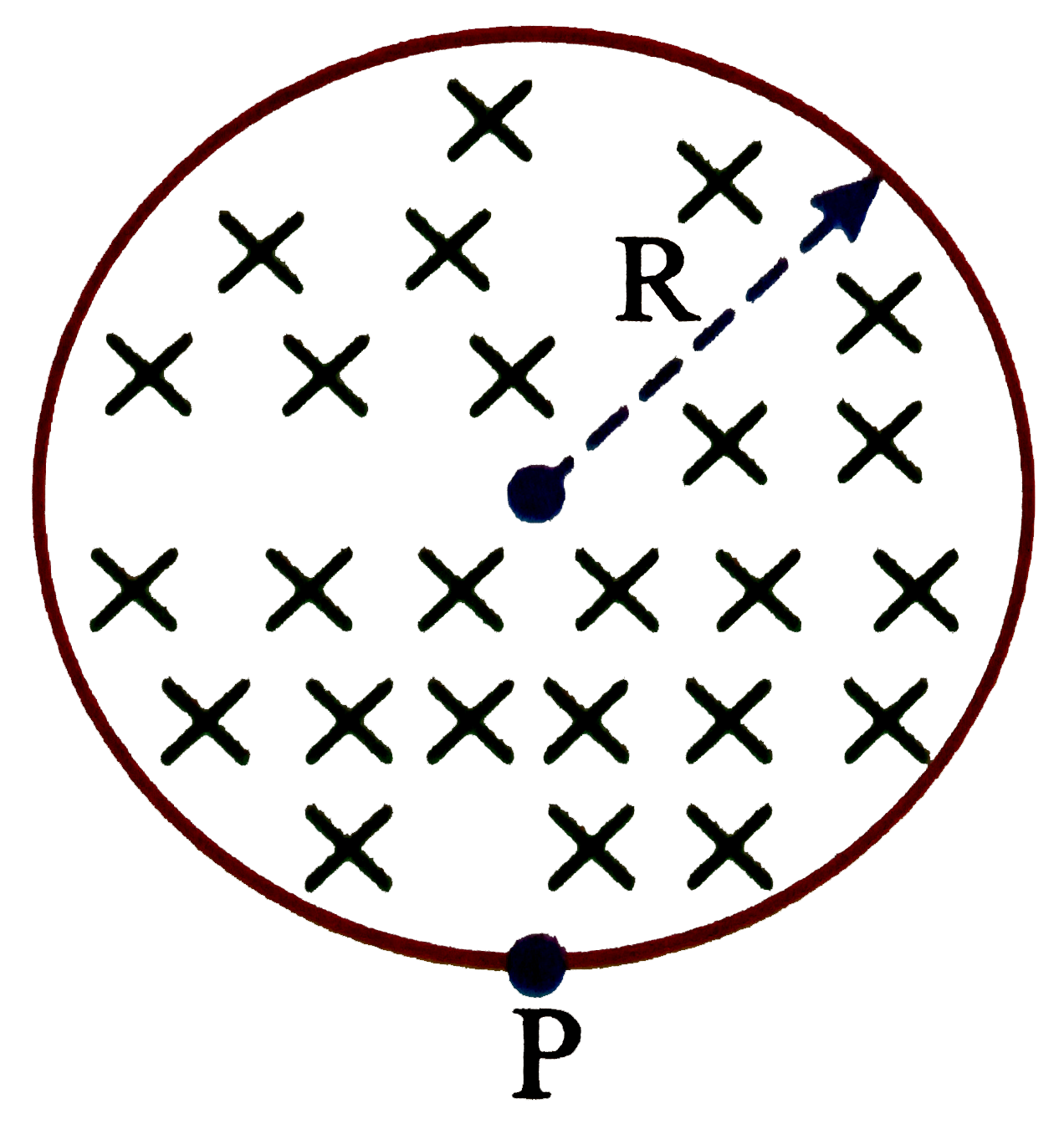
12eRmdBdt towards left
12eRmdBdt towards right
eRmdBdt towards left
zero
The correct Answer is:A
∫→E.d→l=dϕdt=AdBdt
→a=−q→Em. Direction of induced field can determined from Lenz's law
Topper's Solved these Questions
- ELECTRO MAGNETIC INDUCTIONBOOK - NARAYNACHAPTER - ELECTRO MAGNETIC INDUCTIONEXERCISE - Level-I(H.W)
23 Videos
- ELECTRIC CHARGES AND FIELDSBOOK - NARAYNACHAPTER - ELECTRIC CHARGES AND FIELDSEXERCISE - EXERCISE -4
43 Videos
- ELECTRO MAGNETIC WAVESBOOK - NARAYNACHAPTER - ELECTRO MAGNETIC WAVESEXERCISE - LEVEL-II(H.W)
14 Videos
Similar Questions
A uniform magentic field of induction B is confined in a cyclinderical region of radius R. If the field is incresing at a constant rate of dBdt=αT/s, then the intensity of the electric field induced at point P, distant r from the axis as shown in the figure is proportional to :
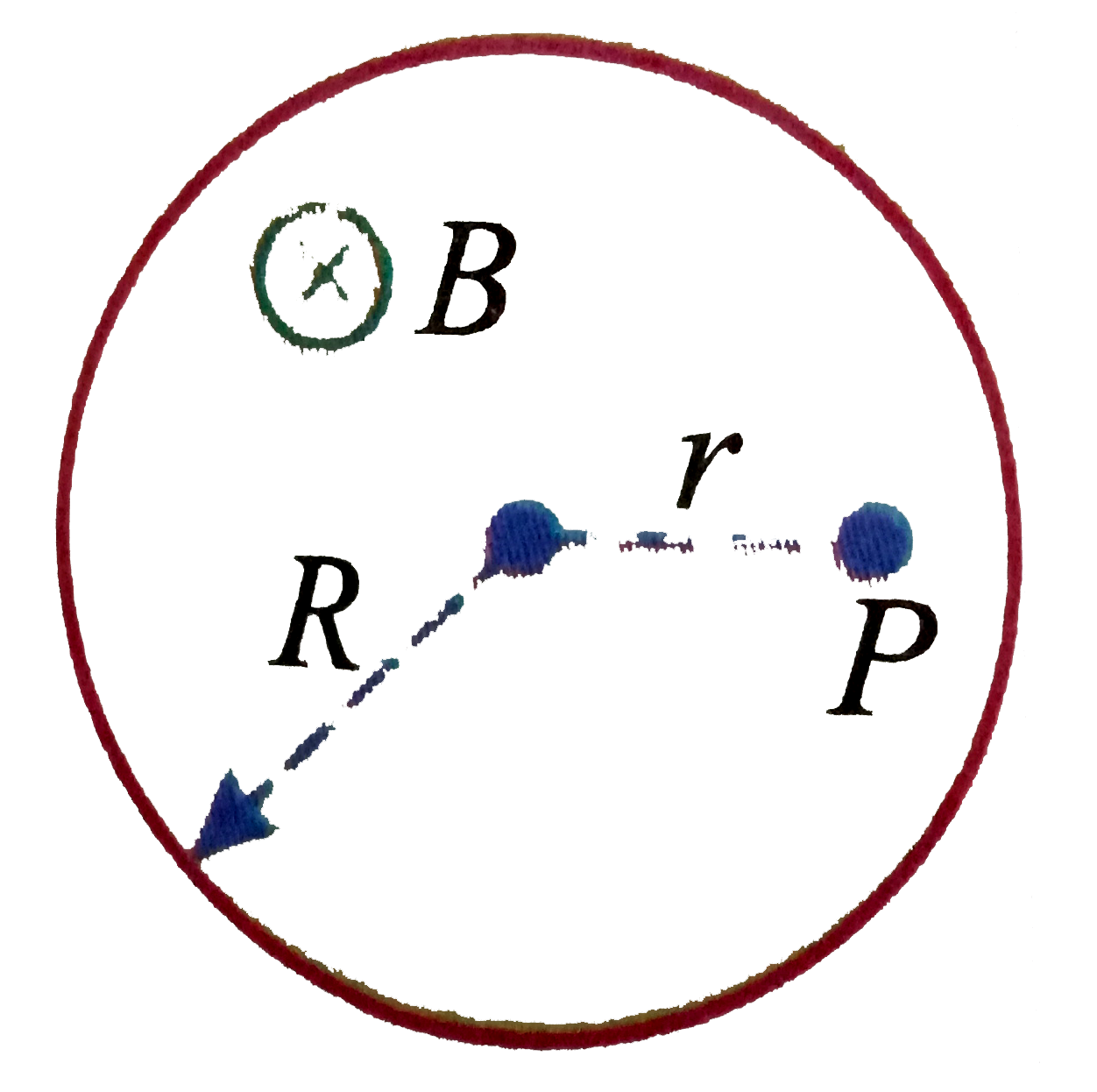
View SolutionThere exists a uniform magnetic field perpendicular to the plane of the figure in a cylindrical region of radius a. The magnetic field is increasing at a constant rate of αTs−1. A particle having charge q is at a point P outside the field region. The particle is slowly moved to infinity. Calculate work done by the external agent on the particle if-
(a) the particle is moved in radial direction OP.
(b) the particle is moved in a direction perpendicular to OP along PQ.
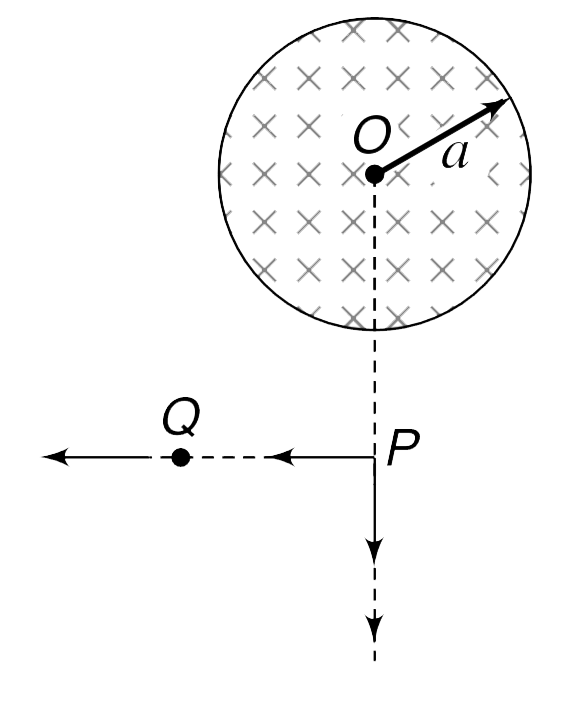
View Solution
Knowledge Check
A uniform magnetic field of induction B is confined to a cyclindrical region of radius R. The magnetic field is increasing at a constant rate of dB/dt (tesla/ second). A charge e of mass m, placed at the point P on the periphery of the fixed experiences an acceleration :
 A12eRmdBdt towards leftB12eRmeBdt towards rightCeRmdBdt towards leftDzero
A12eRmdBdt towards leftB12eRmeBdt towards rightCeRmdBdt towards leftDzeroFigure shown a uniform magnetic field B confined to a cylindrical volume and is increasing at a constant rate. The instantaneous acceleration experienced by an electron placed at P is
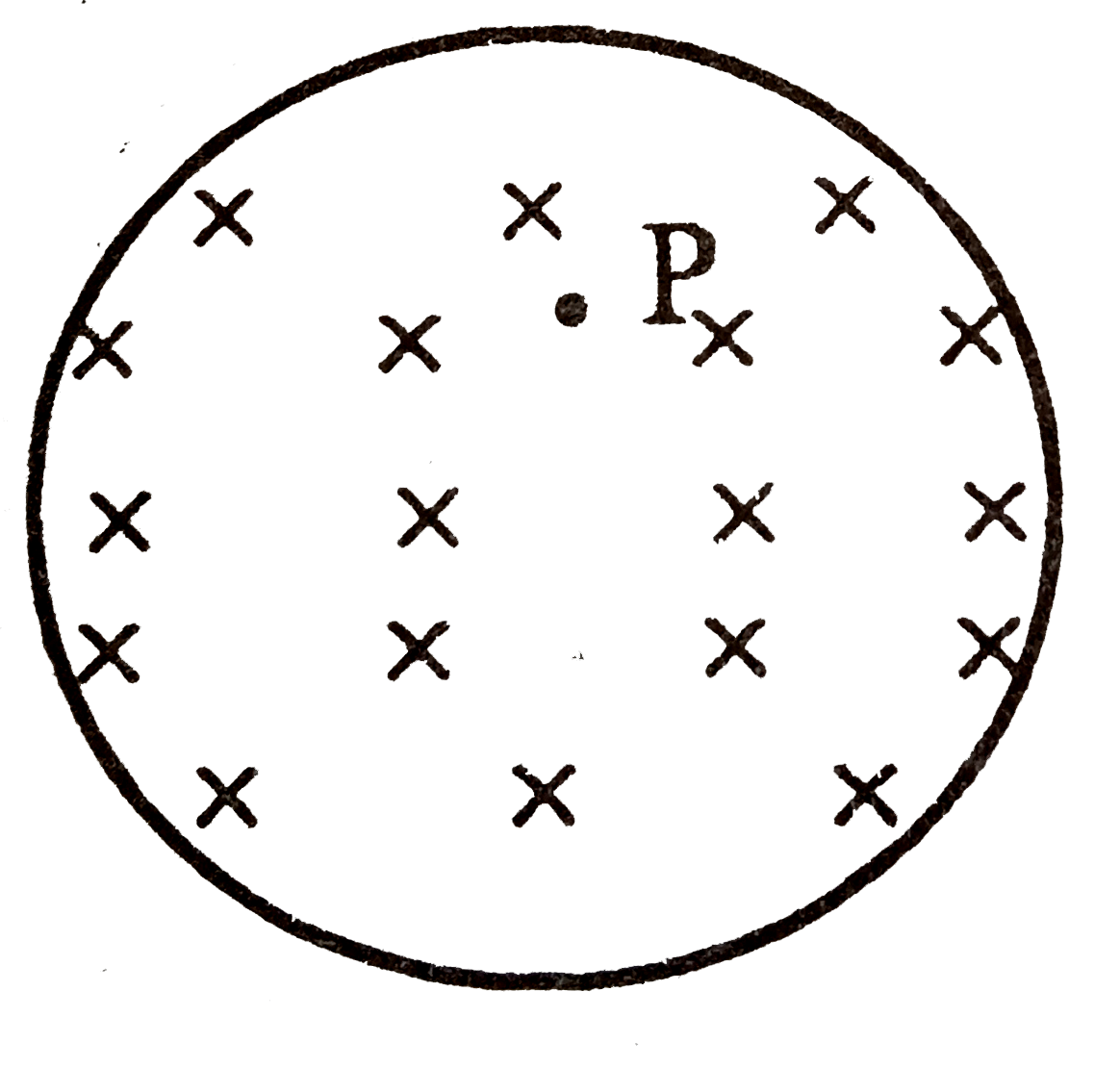 Azero, since charge on electron in constantBtowards rightCtowards leftDupwords
Azero, since charge on electron in constantBtowards rightCtowards leftDupwordsa uniform magnetic field of induction B fills a cylinderical volume of radius R. A rod AB of length 2l is placed as shown in . If B changing at the rate dB/dt, the emf that is produced by the changing magnetic field and that acts between the ends of the rod is
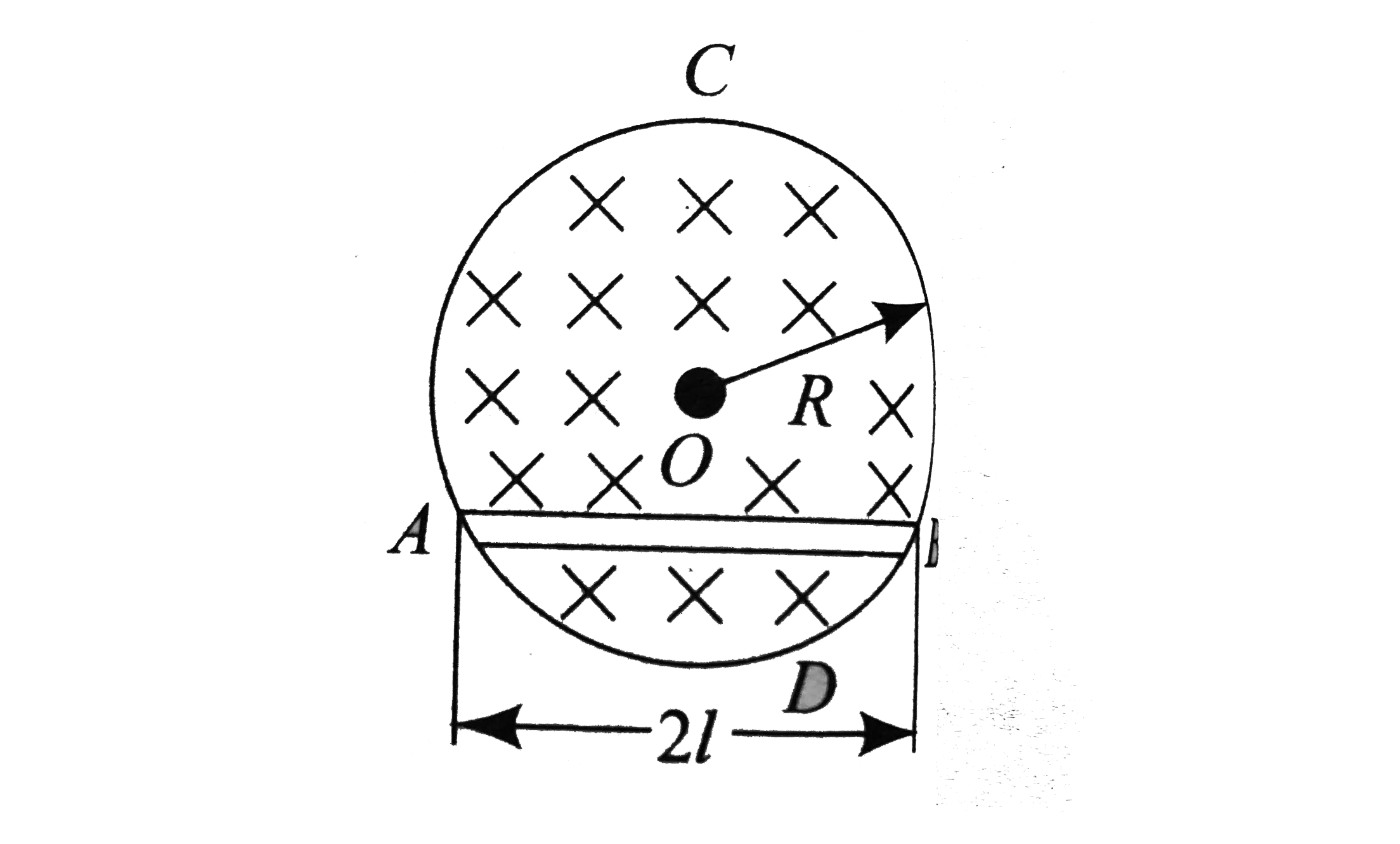 A(a) dBdtl√R2−l2B(b) dBdtl√R2+l2C( c) 12dBdtl√R2−l2D(d) 12dBdtl√R2+l2
A(a) dBdtl√R2−l2B(b) dBdtl√R2+l2C( c) 12dBdtl√R2−l2D(d) 12dBdtl√R2+l2
Figure shows a uniform magnetic field of induction B confined to a cylindrical volume of radius R. B is increasing at a constant rate of 100 T/s. What is instantaneous acceleration experienced by a charged particle placed at C distant r from centre. Assume r = 5 m.
(Given qm=1.6×10−2 C/kg)

View SolutionA uniform magnetic field B exists in a circular region of radius R. the field is perpendicular to the plane and is increasing at a constant rate of dBdt=α. There is a straight conducing rod AB of length 2R. Find the emf induced in the rod when it is placed as shown in figure (a) & (b). Point C is midpoint of the rod in figure (b)
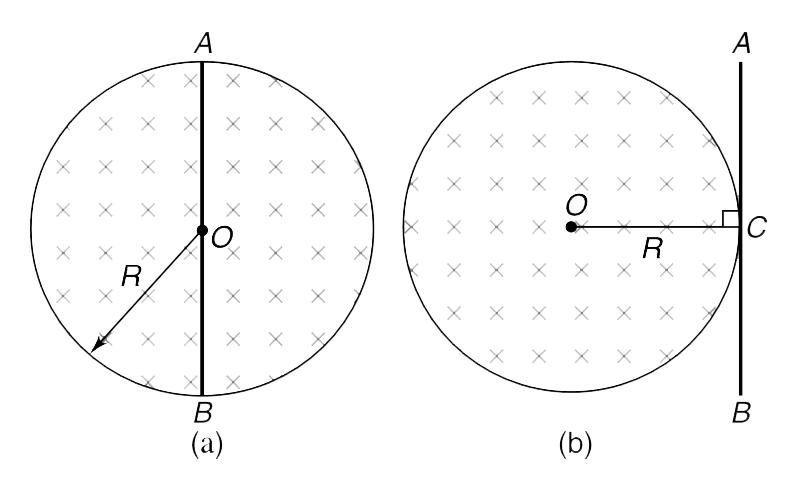
View SolutionThe magnetic field perpendicular to the plane of a conducting ring of radius r change ate the rate dBdt
View SolutionA charged particle of mass m is moving with a speed u in a circle of radius r. If the magnetic field induction at the centre is B, the charge on the particle is
View SolutionThe magnetic field within cylindrical region whose cross - section is indicated starts increasing at a constant rate α tesla/sec . The graph showing the variation of induced field with distance r from the axis of cylinder is :

View Solution
